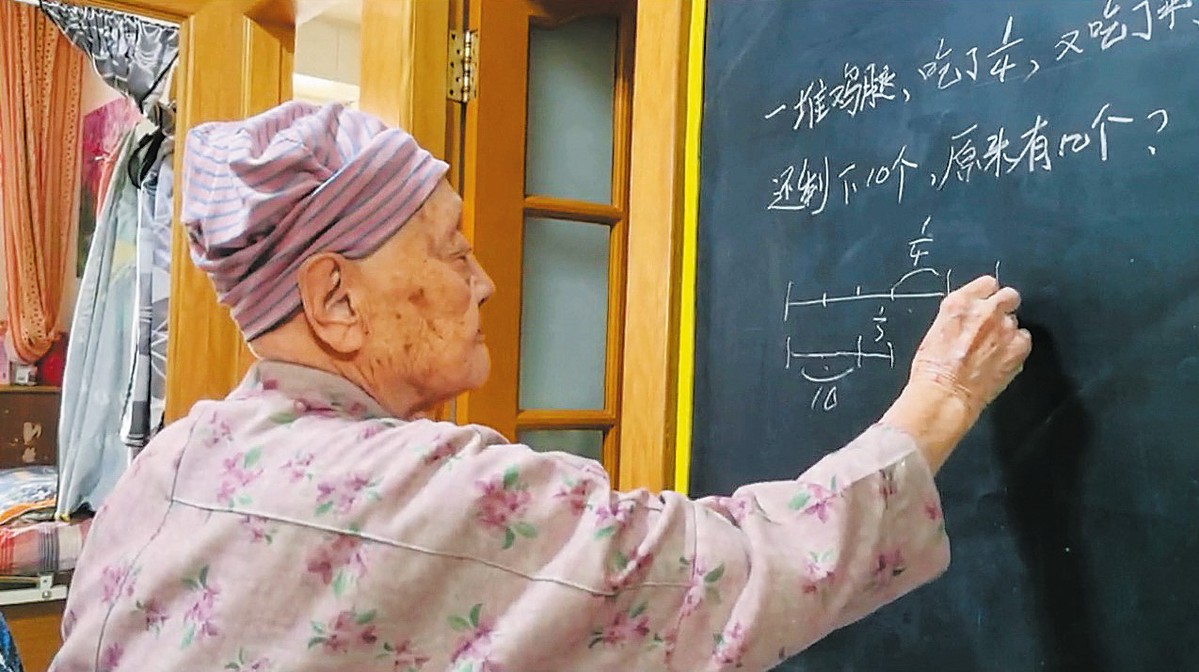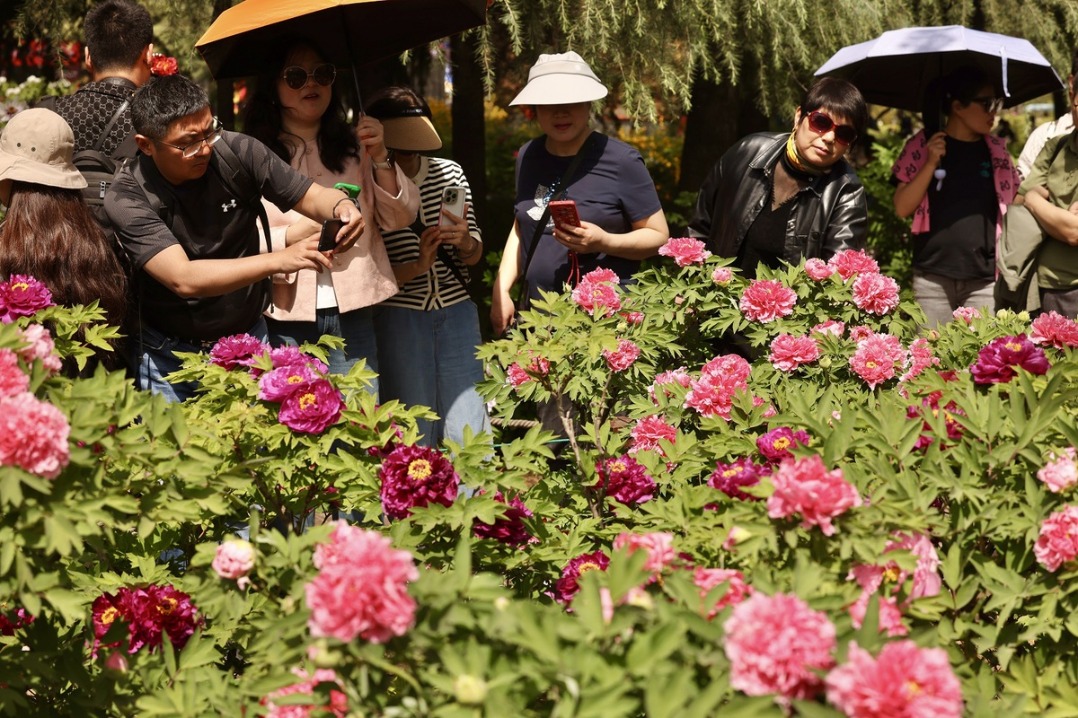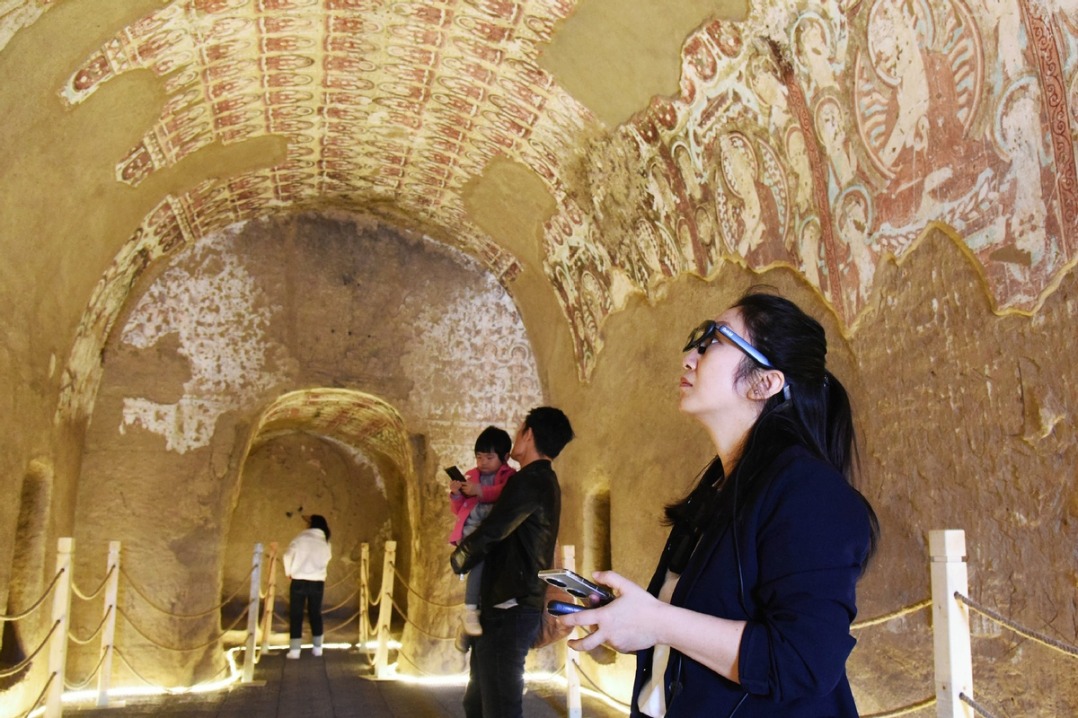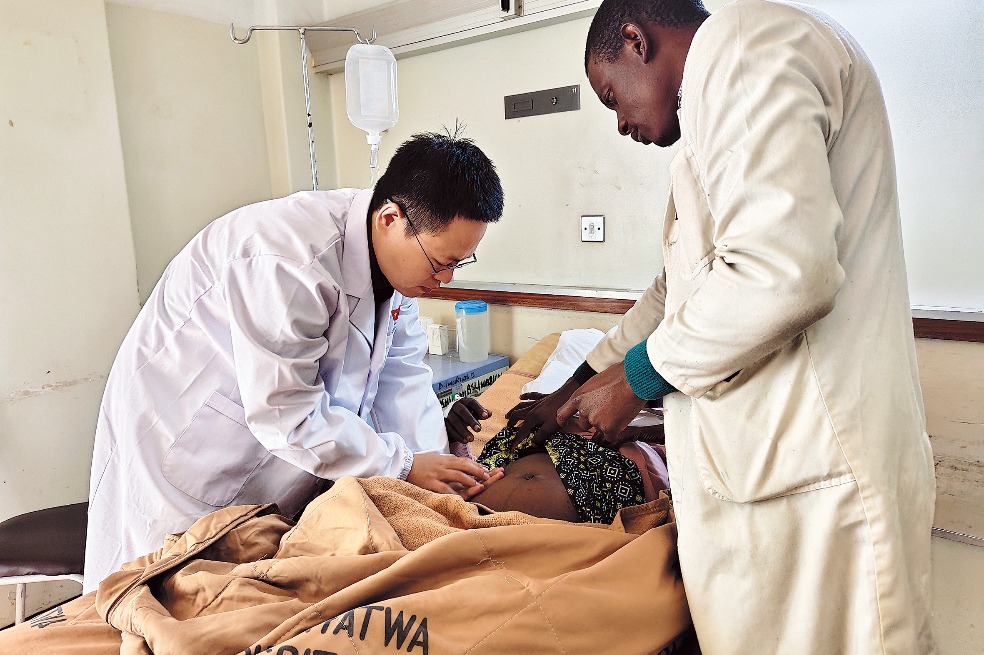Classroom therapy brings smiles to ailing mom


In the living room of an ordinary residential building in Jiamusi city, Heilongjiang province, 92-year-old Lei Lanmei spends her days in front of a blackboard. With chalk, she writes down idioms or solves math problems, each within 10 minutes.
Lei, a former primary school teacher with over 30 years of experience, faces cognitive decline due to recent diabetes complications. To help slow the progression, her 67-year-old daughter, Hu Wei, recreated an elementary school classroom at home.
"My elder brother and younger sister have passed away, and my younger brother lives far away in Shandong province. I am the only one left in the family who can accompany my mother," Hu said. "Taking care of her is the most important thing for me.
"She loves reading. But over 30 years of diabetes caused her retinopathy, which made her vision deteriorate rapidly. She could hardly immerse herself in books," she added. "To help her beat boredom and find joy in life again, I tried many methods."
Hu initially tried educational toys and sketch books, but neither proved effective.
About three years ago, a medical examination revealed Lei's unstable blood sugar and peripheral neuropathy, causing numbness in her hands and feet.
"The doctor told me that if the situation continued to develop, my mother's cognitive function will deteriorate rapidly," Hu said. "After searching for related medical information, I knew that the incidence of Alzheimer's disease in diabetic patients is two to three times that of other people."
While sorting old belongings, Hu discovered Lei's old lesson plans, filled with red pen annotations on yellowed pages.
"At that moment, I suddenly had an inspiration," Hu said. "Since my mother had taught lessons for decades, maybe I can rebuild a classroom for her."
Hu purchased a magnetic blackboard online and placed it prominently in the living room.
"When my mother wrote the first Chinese idiom 'hui ren bu juan', which means teaching people tirelessly, on the new blackboard with her trembling hands, I found long-lost sparkles appeared in her eyes," Hu said.
Hu carefully designs each lesson, explaining idioms or solving math problems, adjusting the difficulty to avoid frustration or underestimation.
One memorable moment involved a challenging applied math problem about filling and draining a pool.
When Lei struggled with the third equation, Hu used a basin and water bottle to demonstrate the problem.
"As the sound of flowing water overlapped with the calculation process, my mother suddenly exclaimed, 'We need to set two unknowns,'" Hu said. "At that moment, her shining eyes seemed to bring her back to decades ago. I also felt a great sense of accomplishment."
Hu keeps lessons to 10 minutes, monitoring Lei's behavior for signs of fatigue or happiness.
"If it goes overtime, she will become absent-minded," Hu said. "If she unconsciously taps the table with her fingers, it means she's tired. If she suddenly sings an old song, it shows her happy mood."
Hu also monitors Lei's health, measuring her blood pressure and glucose levels daily and consulting with an endocrinologist.
"I am maintaining close contact with an endocrinologist to consult on her condition," Hu said. "If I notice any issues with the data, I can quickly contact the doctor.
"When more elderly people are facing memory decline, such persistence may be just a small step," she said. "For me, as long as my mother can pick up the chalk, the words on the blackboard can continue to be written."




































